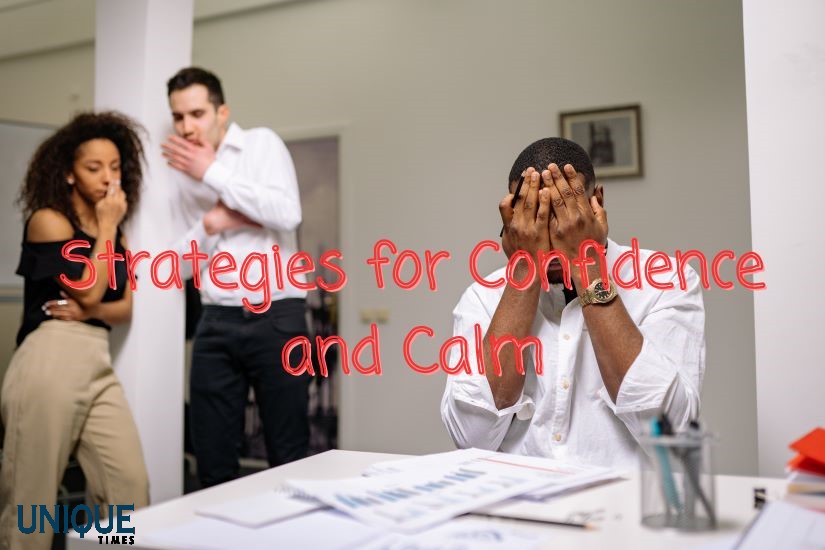Navigating Meeting Anxiety: Strategies for a Calmer Presence

Meetings are a common part of professional life, but for some, they can become anxiety-inducing situations. Whether you’re a seasoned professional or a newcomer to the workforce, feeling anxious in a meeting is a challenge that many face. In this blog, we’ll explore practical strategies to cope with meeting anxiety and ensure a calmer and more confident presence.
Understanding Meeting Anxiety: Unpacking the Unease
- Identifying Triggers: Start by pinpointing the specific aspects of meetings that trigger your anxiety. It could be speaking in public, fear of judgment, or the pressure to contribute.
- Shifting Mindset: Reframe your perception of meetings. Instead of viewing them as high-stakes situations, consider them as opportunities for collaboration and shared insights. Shifting your mindset can help alleviate anxiety.
- Preparation Is Key: Thoroughly prepare for meetings by reviewing the agenda and familiarizing yourself with the topics to be discussed. The more prepared you are, the more in control and confident you’ll feel.
In-the-Moment Coping Strategies:
- Deep Breathing: Practice deep breathing exercises to manage anxiety in the moment. Inhale deeply through your nose, hold for a few seconds, and exhale slowly through your mouth. This helps calm the nervous system.
- Mindful Presence: Stay present in the meeting by focusing on the current topic of discussion. When anxious thoughts arise, gently bring your attention back to the present moment.
- Positive Self-Talk: Challenge negative thoughts with positive affirmations. Remind yourself of your skills and expertise, and acknowledge that your perspective is valuable.
Communication Techniques:
- Active Listening: Engage in active listening to divert attention away from anxious thoughts. Focus on understanding the speaker’s message rather than dwelling on your own discomfort.
- Strategic Contribution: If contributing to the discussion triggers anxiety, plan your contributions in advance. Jot down key points or questions to ensure you feel more prepared when it’s your turn to speak.
Post-Meeting Reflection:
- Celebrate Small Wins: Acknowledge and celebrate your achievements, no matter how small. Recognize instances where you effectively contributed or managed anxiety well.
- Continuous Improvement: Reflect on each meeting to identify areas for improvement. Consider what strategies were effective and what adjustments could be made for future situations.
Seeking Support:
- Professional Help: If meeting anxiety significantly impacts your well-being, consider seeking professional help. A therapist or counselor can provide coping strategies tailored to your specific needs.
- Colleague Understanding: Share your feelings with a trusted colleague or supervisor. Sometimes, knowing that others understand and support you can alleviate anxiety.
Conclusion: Empowering Yourself in Meetings
Meeting anxiety is a common challenge, but with proactive strategies and a supportive mindset, you can empower yourself to navigate these situations with greater ease. Remember, it’s okay to seek support, and each successful encounter with meeting anxiety is a step toward personal and professional growth.
Picture Courtesy: Google/images are subject to copyright








